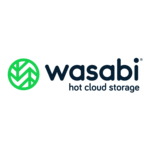DUBLIN--(BUSINESS WIRE)--The "Global and China Automotive OTA Industry Report, 2021" report has been added to ResearchAndMarkets.com's offering.
Automotive OTA research: OTA capabilities determine the success or failure of the transformation of OEMs
In recent years, automotive OTA configurations have maintained a rapid growth trend. According to the publisher, China's passenger car OTA OEM configurations will reach 4.449 million units in 2020, a year-on-year increase of 15.9%; the installation rate rose from 19.7% in 2019 to 23.7% in 2020. China's passenger car OEM OTA installation rate hit 28.3% from January to May 2021, and is estimated at 80% by 2025, and FOTA will gradually dominate.
OTA is a key factor in the closed loop of the software-defined vehicle (SDV) business model.
At present, the supplier model is still the main way for OEMs to deploy OTA. The main suppliers, including PATEO, Banma Information Technology, Harman, Excelfore, Airbiquity, ABUP, CAROTA, Bosch, Continental, Desay SV, Neusoft, Joyson Electronics, etc., can provide complete OTA solutions for OEMs.
Taking Qing OTA of PATEO as an example, PATEO Qing Cloud has established an OTA platform for complex actual conditions. It can not only perform OTA updates for OS, T-Box, applications, maps, etc., but also carry out FOTA updates for clusters, ECUs and other vehicle parts.
As far as the development trend of OTA is concerned, OTA is no longer a single function on cars. From a deeper perspective, OTA will be linked with the development of the entire automotive industry. The development of PATEO Qing OTA starts from the SOTA layout and gradually transfers to the field of FOTA and OTA software operation, and finally reaches the stage where the definition of software services drives the definition of vehicles.
With the maturity and application of automotive software systems and OTA, the business model of the entire automotive industry will also change. From the perspective of consumers, automakers have successively begun to transform their business models, from the past 'selling cars' business model to the 'selling cars + selling software' business model.
Many automakers have launched paid software packaging and OTA update services. In particular, emerging automakers make faster progress in business models. For example, Tesla provides FSD software package with a price of up to USD10,000. Through embedded hardware and continuous OTA updates, FSD improves the autonomous driving to L3 or even L4. Tesla's FSD pre-installation rate in the United States is as high as 30-40%. Tesla's software revenue exceeded USD1.9 billion in 2020, and it is expected to reach USD20 billion by 2025.
Chinese startup Xpeng has launched XPILOT3.0 software package (pre-installed) worth RMB20,000, and NIO has unveiled NIO Pilot (a RMB15,000 selected package and a RMB39,000 full package). Both of them see impressive pre-installation rates and have earned software revenue hereby.
In terms of fuel vehicles, automakers are actively exploring the paid OTA model. In November 2020, Geely PREFACE announced the fuel vehicle OTA update program, which involves hardware and software such as automated parking, panoramic images, IVI, air conditioning, and engine NVH. Via FOTA, the OTA update Solutions is priced at RMB5,777 (free before the end of 2020).
The cooperation between suppliers and OEMs tends to be flexible. There are mainly three OTA cooperation modes: first, turnkey projects, paid software, and end-to-end overall solutions; second, brand new functions, paid project development; third: payment on demand.
Generally speaking, OTA updates after the SOP of vehicles, the improvement of existing functions and patches are supported and maintained by suppliers, and the cost is included into the model development fee without additional charges. If OEMs need to add new features to updates, they need to pay additional development fees to suppliers. OEMs have built their own software development teams to support continuous OTA software updates and enhance vehicle competitiveness.
Key Topics Covered:
1. Overview of Automotive OTA Industry
1.1 Concept of OTA and Technologies
1.2 OTA Operation
1.3 OTA's Role and Challenges
1.4 OTA Industrial Models
1.5 OTA and Other New Automotive Technologies
2. Status Quo and Development Trends of Automotive OTA
2.1 OTA Standards and Policies
2.2 OTA Update History of OEMs
2.3 OTA Market Scale
2.4 OTA Development Trends
3. Automotive OTA Technology Supply and Solutions
3.1 Harman
3.2 Excelfore
3.3 Airbiquity
3.4 Windriver
3.5 ABUP
3.6 Redstone
3.7 CAROTA
4. OTA Business of Tier1 Suppliers
4.1 PATEO
4.2 Neusoft
4.3 Desay SV
4.4 Banma Information Technology
4.5 Joyson Electronics
4.6 ThunderSoft
4.7 Bosch
4.8 Continental
4.9 Aptiv
4.10 ZF
4.11 Denso
4.12 Faurecia
5. OTA Features and Layout of Major Foreign Automakers
5.1 Tesla
5.2 GM
5.3 Ford
5.4 Toyota
5.5 Honda
5.6 Hyundai
5.7 Volkswagen
5.8 BMW
5.9 Daimler
5.10 Volvo
5.11 OTA Layout of Major Foreign Automakers
6. OTA Features and Layout of Major Domestic Automakers
6.1 NIO
6.2 Xpeng
6.3 Lixiang
6.4 WM Motor
6.5 SAIC Passenger Vehicle
6.6 Geely
6.7 GAC Motor
6.8 Changan Automobile
6.9 BYD
6.10 BAIC BJEV
6.11 FAW
6.12 Great Wall Motor
6.13 Dongfeng Motor
6.14 Chery
6.15 OTA Layout of Major Chinese Automakers
For more information about this report visit https://www.researchandmarkets.com/r/e4ceg0
Contacts
ResearchAndMarkets.com
Laura Wood, Senior Press Manager
[email protected]
For E.S.T. Office Hours Call 1-917-300-0470
For U.S./CAN Toll Free Call 1-800-526-8630
For GMT Office Hours Call +353-1-416-8900












